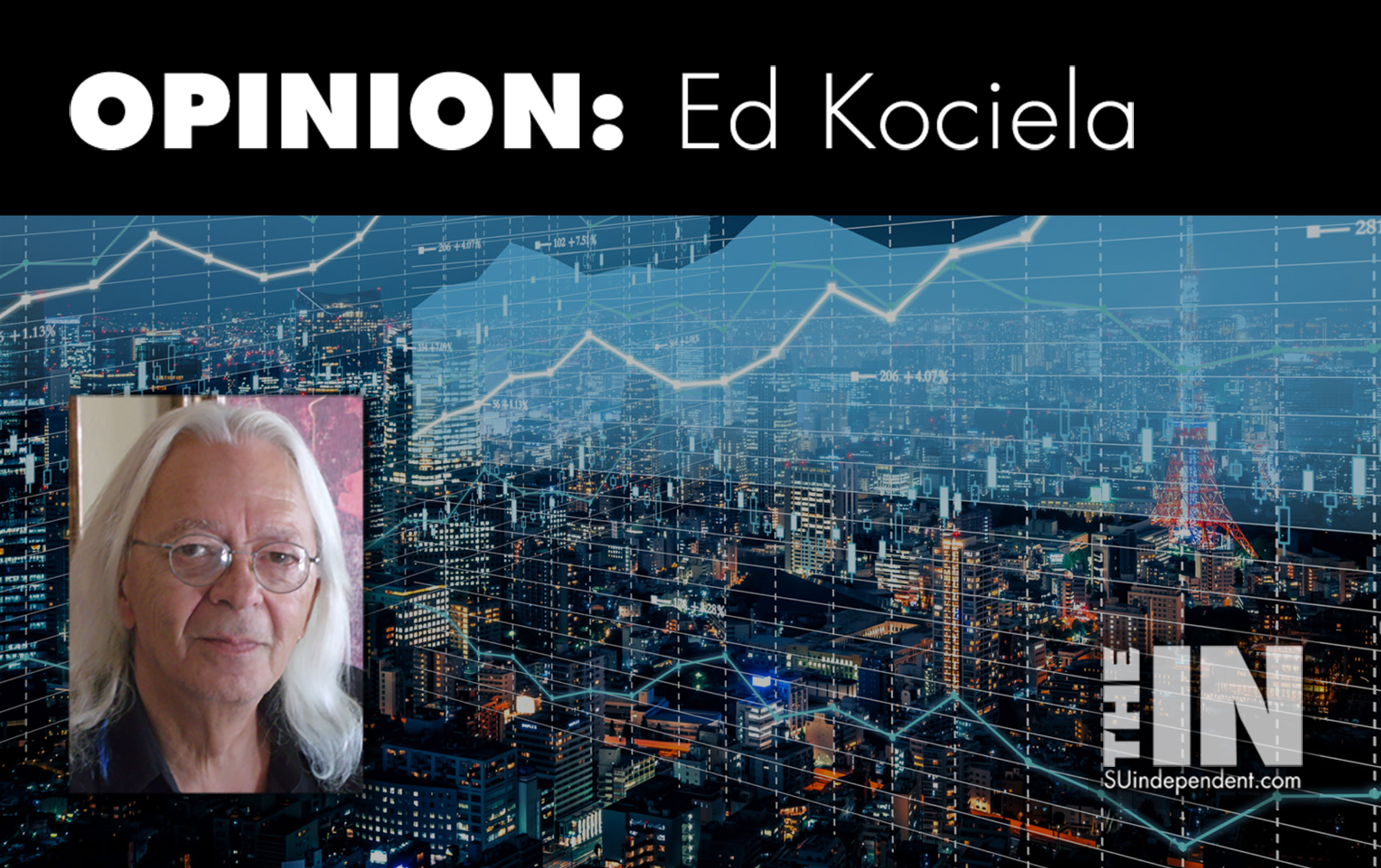
It’s Always The Economy, Stupid
– By Ed Kociela –
In 1992, James Carville, lead strategist for Bill Clinton’s presidential campaign, coined one of the most overworked catchphrases in political history: “It’s the economy, stupid.”
George H.W. Bush was doing gangbusters with voters, particularly with his stand in the Middle East. However, the country had been through a recession and unemployment was mounting as the nation headed to the polls.
Carville, a clever wit and deadly political strategist, focused the campaign, hanging a poster in Clinton campaign headquarters that read:
Change vs. more of the same.
The economy, stupid.
Don’t forget health care.
He chanted the mantra repeatedly and dropped the line about the economy on national television, where it quickly set fire to the Clinton effort and swept him into the Oval Office.
The fact is, it has always been the economy and will always be the economy. Perhaps it was never articulated as cleverly as by Carville, but U.S. voters have nearly always voted their wallets. They don’t quite understand how to figure the so-called Misery Index, an important economic indicator that basically entails adding the seasonally adjusted unemployment rate to the annual inflation rate. A combination of rising unemployment with worsening inflation is not good mojo for the incumbent party in the run-up to elections.
But, it’s not quite that simple.
There are subtle bits and pieces to the economic puzzle that even Harry Potter couldn’t solve with a wave of his wand, bits and pieces that result from action or inaction by Congress, The Fed, Wall Street, and a host of other left-field influences that are so nuanced as to burst the sanity bubble.
It’s not always fair to tie a president to the economy because there are so many factors that can impact it, but we do. And, as I am sure you can guess, the spin is a result of which side of the political aisle you reside on. Conservatives go big on lowering taxes for business and the wealthy, chasing the elusive trickle down that seems to evaporate, mostly, before hitting us. The liberals, on the other hand, are far more likely to go for expanding social projects and growing infrastructure needs to fix things. It is a bit pie in the sky with unpredictable results.
Hardline economists tend to believe that our market is perfectly capable of fixing itself, that while the markets can often be extremely volatile, it’s the long-term that matters, something that makes rating presidents on the economy an imprecise science.
There were gains during the Barack Obama administration that could be tied to George W. Bush, gains during the Trump administration that could be tied to Obama.
Then there’s the impact of COVID-19, which nobody expected or was prepared to deal with that wobbled global economies. All we know is that we had a strange situation with the rich and big business happy before the pandemic while the working economic classes suffered. COVID-19 stirred that pot even more vigorously causing a loss of jobs and massive business closures that critically impacted revenue. Tax cuts to the wealthy also added to a growing deficit.
Quite frankly, a president gets too much credit when the economy is good and too much blame when it tanks. Presidents meet with labor officials, bankers, and investors in a mostly advisory capacity. They work with Congress for initiating responses to the fluctuations and, of course, helm the budget requests.
But the number crunching falls to other hands and is not often a fair appraisal. I mean, what good is job growth if the jobs being added are at the bottom of the scale? All the minimum wage jobs in the world will not fix things, even though there is a plethora of work.
Conservatives will argue that a job is a job period, but the thing is, how good is that job if it places you closer to the poverty level, especially if you lost your previous job through no fault of your own? All that happens is rising debt as you try to pay your bills with less money, the real parameters of the Misery Index. Good news from the stock market doesn’t always fix this because, too often, cash-rich corporations choose to feed investors rather than employees, whose needs are often ignored by way of postponing or severely limiting salary increases, hiking benefit costs for employees and handcuffing expenditures for equipment. It is a real danger of the capitalist system when greed overtakes wisdom, which is often.
Gasoline prices are but one example.
American oil companies answer to shareholders and owners, not the government and a Middle East or Russian leader can shut down the supply chain on a whim to drive prices up. Releasing oil from the national reserve would pose only a temporary fix and result in higher prices eventually to replenish the supply.
Manufacturing suffers when consumers do not have the money to purchase goods. Foreign competition, where inhumane labor practices are the norm, drives the prices of goods down, but we are more often governed by our pocketbook than the morality of slave labor when we need new tennis shoes or TVs or computers.
Advancement in technology often haunts us as other nations employ it at much lower cost, again undercutting U.S. prices.
This would all be much simpler if the double devil of inflation and slacking economy was contained, but it is a global occurrence. COVID-19 shut down a lot of worldwide demand for goods and services that, in turn, resulted in plant closures not only here but abroad, pushing prices skyward to keep up with the law of supply and demand while unemployment grows and wages stagnate, so the global economy shares the pain.
Unfortunately, stimulating the economy means people having the confidence to spend money. The theory is that the more money circulates, the more it grows, resulting in higher profits from an uptick in sales revenue. It is a large leap of faith, of course, to spend your money on a steak when you are on a McDonald’s budget, but that is how it works. The more money on the table the more vigorous the flow. Lowering taxes on the working class would certainly help put more money on that table and keep it afloat, as we learned from the pandemic stimulus check distribution. While that would be a hard sell for Republicans, it just might be a way to loosen the chokehold inflation, unemployment, and a faltering economy has on all of us.
Although there is plenty blame to go around, we would be better served if those involved in governance looked for solutions rather than where to place blame because, after all, it is the economy, stupid.
Viewpoints and perspectives expressed throughout The Independent are those of the individual contributors. They do not necessarily reflect those held by the staff of The Independent or our advertising sponsors. Your comments, rebuttals, and contributions are welcome in accordance with our Terms of Service. Please be respectful and abide by our Community Rules. If you have privacy concerns you can view our Privacy Policy here. Thank you!
Click here to submit an article, guest opinion piece, or a Letter to the Editor




